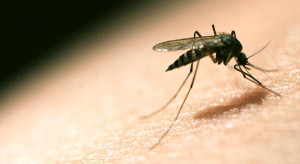 Stephen Gourley is involved in an ongoing project that aims to understand the evolution of insecticide resistance in mosquitoes, how we can make more effective use of insecticides to delay the onset of resistance, and the implications for malaria control. Two papers on this topic have been accepted for publication recently. The first paper, on the intriguing idea that resistance to mosquito larvicides could actually benefit malaria control, was co-authored with Rongsong Liu (University of Wyoming) and has appeared online in the European Journal of Applied Mathematics. The title of the paper is “Resistance to larvicides in mosquito populations and how it could benefit malaria control“. The link to the journal website is here.
Stephen Gourley is involved in an ongoing project that aims to understand the evolution of insecticide resistance in mosquitoes, how we can make more effective use of insecticides to delay the onset of resistance, and the implications for malaria control. Two papers on this topic have been accepted for publication recently. The first paper, on the intriguing idea that resistance to mosquito larvicides could actually benefit malaria control, was co-authored with Rongsong Liu (University of Wyoming) and has appeared online in the European Journal of Applied Mathematics. The title of the paper is “Resistance to larvicides in mosquito populations and how it could benefit malaria control“. The link to the journal website is here.
The second paper, co-authored with Rongsong Liu and Chuncheng Wang, is titled “Delayed action insecticides and their role in mosquito and malaria control“. Only older mosquitos can pass on malaria, sine the parasite requires most of the mosquito’s adult life to complete its development. This has led to some interest among biologists in the idea of late life acting insecticides that selectively kill only old mosquitos, with the aim to delay the onset of resistance without compromising malaria control. The paper, on a complex mathematical model incorporating age structure in the mosquitoes and malaria disease dynamics, has appeared online in the Journal of Mathematical Biology. The link to the journal website is here.
